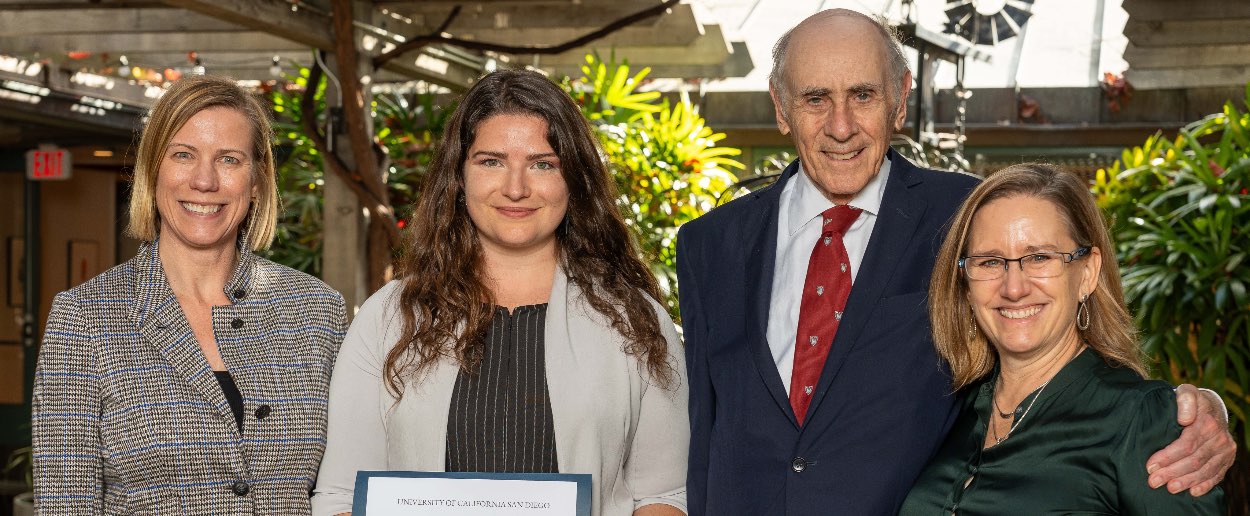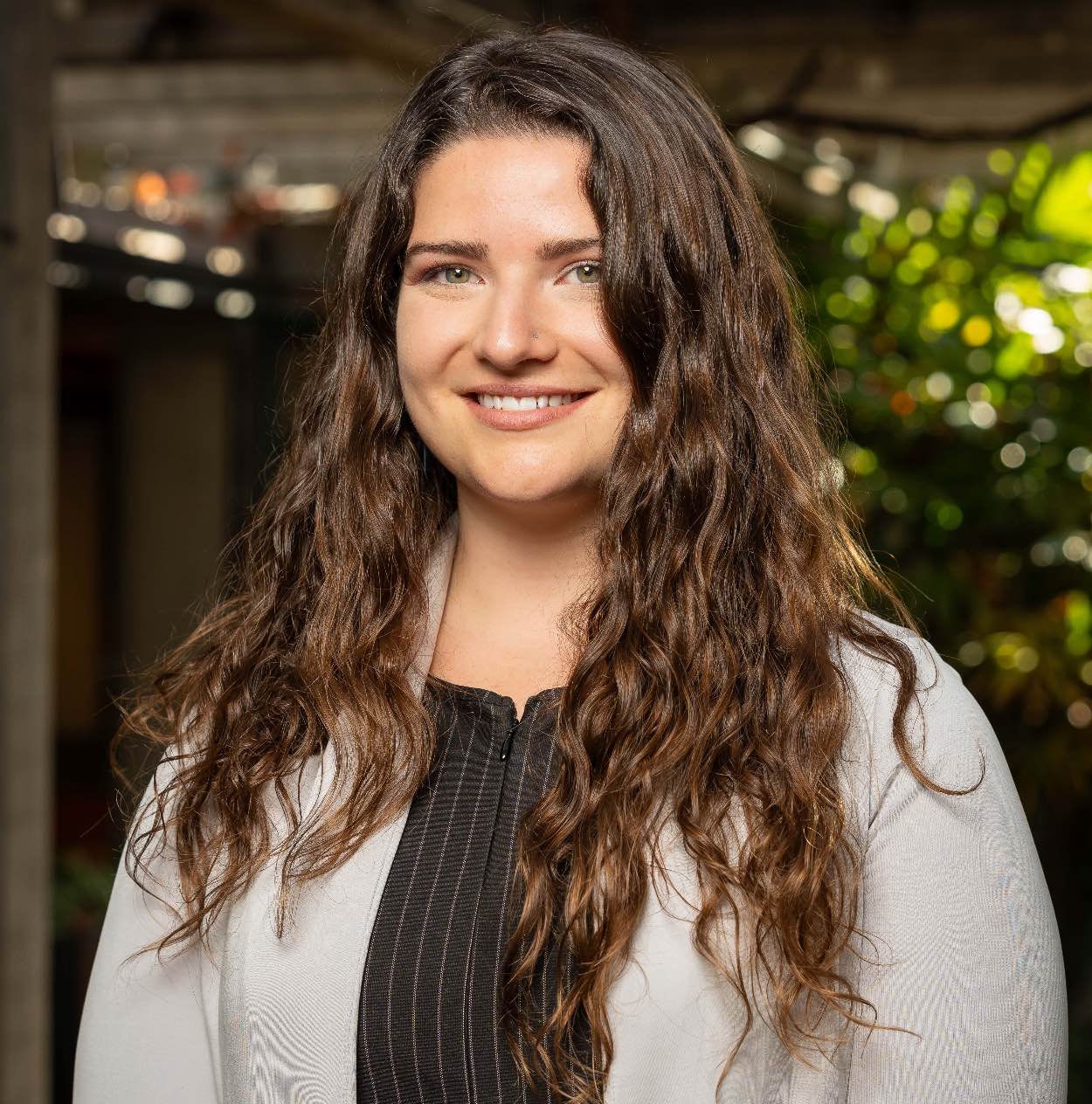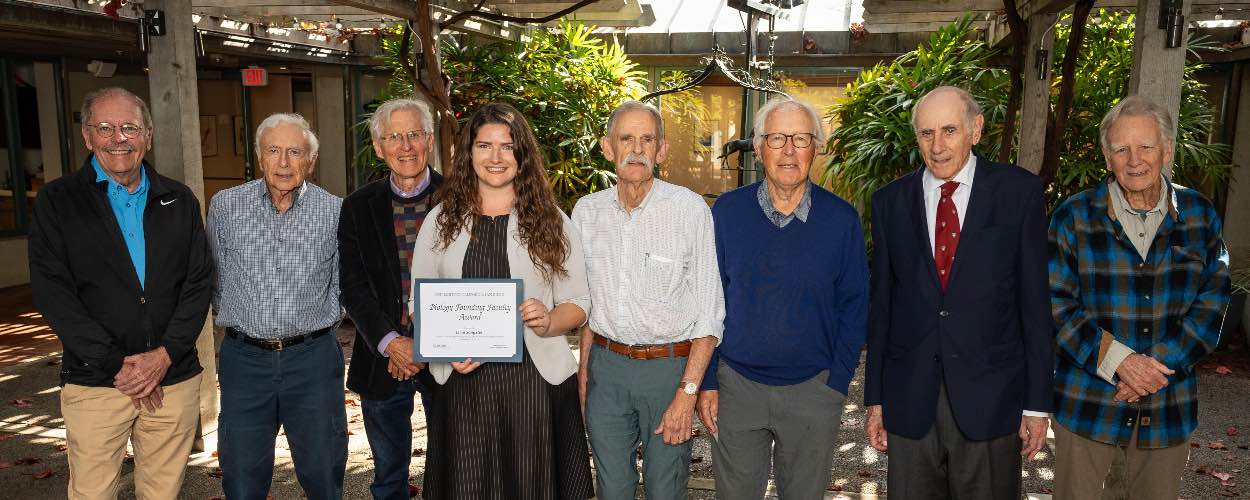Graduate Student Livia Songster Receives Founding Faculty Award
December 4, 2023
By Mario Aguilera
Peroxisomes are cell components known to be involved in several metabolic processes, including energy metabolism. Professor Samara Reck-Peterson’s laboratory discovered that in some fungal cells peroxisomes get where they need to go by “hitchhiking” rides on other cellular components. But exactly how peroxisome hitchhiking plays out inside cells has not been well understood.

(from left) Professor Samara Reck-Peterson, Founding Faculty Award winner Livia Songster, Founding Faculty Professor Stu Brody and Dean Kit Pogliano
Livia Songster is a fifth-year UC San Diego School of Biological Sciences PhD candidate in Reck-Peterson’s lab, which focuses on the mechanisms behind the transportation “highways” known to exist across cells in healthy and disease states. Songster has helped answer questions surrounding peroxisome movement by studying specialized peroxisomes known as “Woronin bodies,” which play a role in cellular injury recovery by serving as microscopic “corks” that plug pores and prevent widespread damage.
For her efforts conceiving the project, designing and executing supporting experiments and serving as first author of the resulting paper, Songster has been awarded the 2023-2024 Biological Sciences Founding Faculty Award for Graduate Excellence. The award, first given in 2015, was established through an endowment started by some of the first and most influential members of the School of Biological Sciences. Photos of Founding Faculty honorees are featured in UC San Diego’s Bonner Hall lobby.

Biological Sciences Graduate Student Livia Songster
Each year a committee of emeritus faculty representatives from the School’s four departments selects one or more award winners. In this year’s case, the Founding Faculty Award committee was nearly unanimous in selecting Songster’s paper.
The paper, “Woronin body hitchhiking on early endosomes is dispensable for septal localization in Aspergillus nidulans,” was featured on the June 1 cover of the journal Molecular Biology of the Cell with an image of filamentous fungi captured by Songster. The research has helped overturn previous assumptions and uncover new details about whether hitchhiking is important for Woronin body function.
Although they move about dynamically by hitchhiking, the study showed that Woronin body movement is not required for their role in pore plugging after injury. The findings raise the exciting question about the role of peroxisome hitchhiking, which Songster is now pursuing.
“This study characterizes the mechanism of long-distance movement of peroxisome-derived Woronin bodies in filamentous fungi and refutes a 20-year-old hypothesis,” said Reck-Peterson, a professor in the Departments of Cell and Developmental Biology and Cellular and Molecular Medicine.

Livia Songster with members of Biological Sciences’ founding faculty and award supporters.